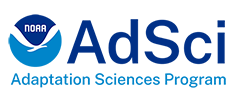Views From The Dock: Warming Waters, Adaptation, And The Future Of Maine’s Lobster Fishery






Advancing scientific understanding of climate, improving society’s ability to plan and respond






Advancing scientific understanding of climate, improving society’s ability to plan and respond

